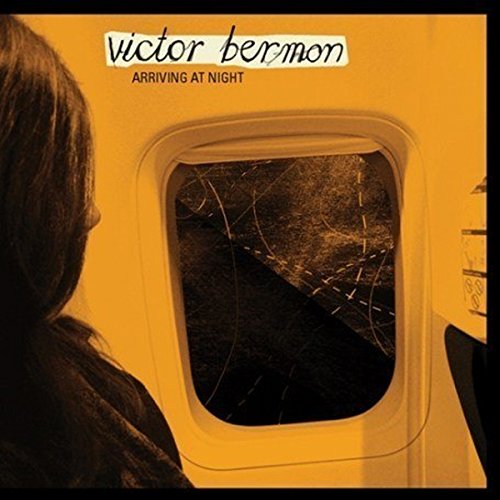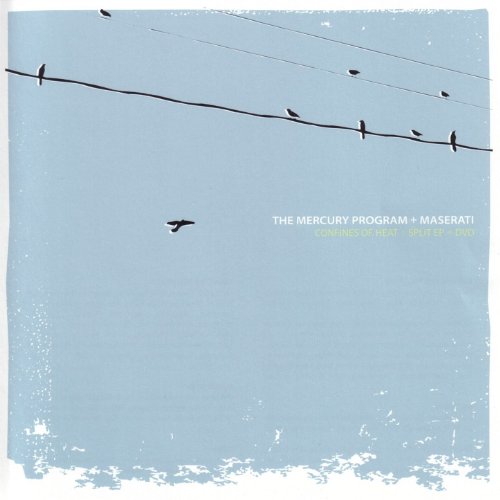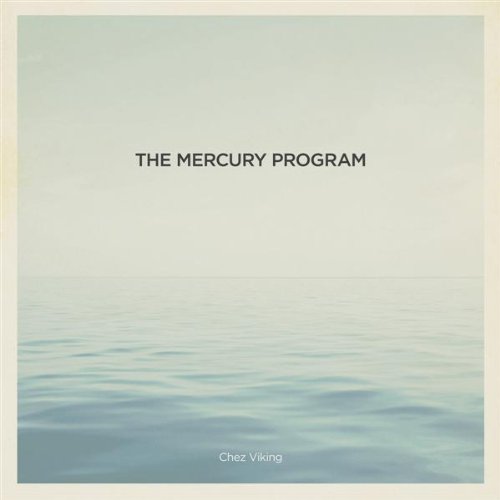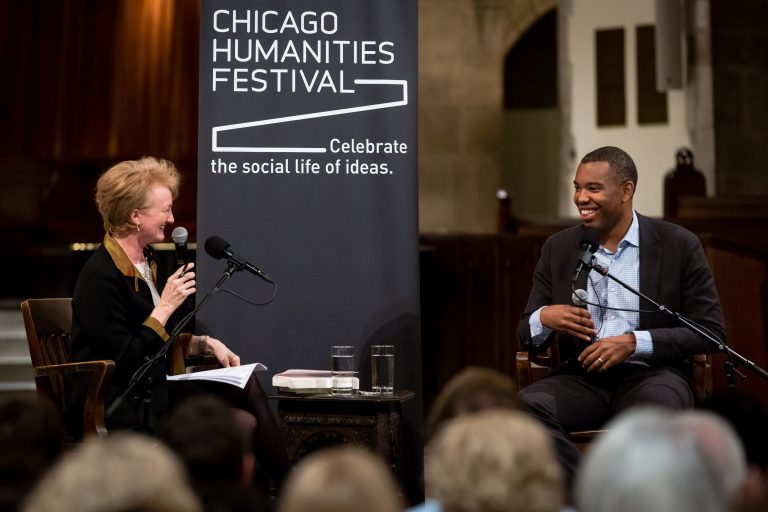Rami Nashashibi and Lucas Johnson
Community Organizing as a Spiritual Practice
Community organizers Rami Nashashibi and Lucas Johnson have much to teach us about using love — the most reliable muscle of human transformation — as a practical public good. Nashashibi is the founder of the Inner-City Muslim Action Network, a force for social healing on Chicago’s South Side. Johnson is the newly-named executive director of The On Being Project’s Civil Conversations Project. In a world of division, they say despair is not an option — and that the work of social healing requires us to get “proximate to pain.”
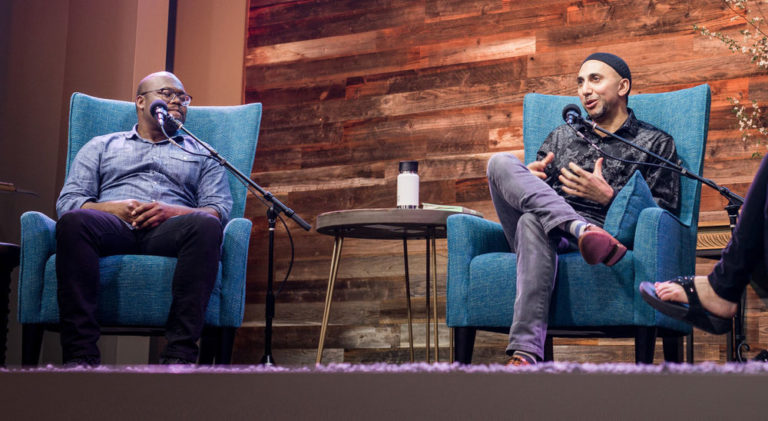
Image by Bethany Birnie, © All Rights Reserved.
Guests
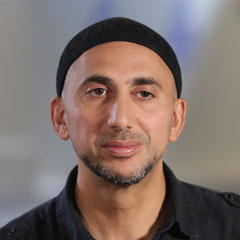
Rami Nashashibi is founder and executive director of the Inner-City Muslim Action Network (IMAN) in Chicago. He was named a MacArthur fellow in 2017 and an Opus Prize laureate in 2018.
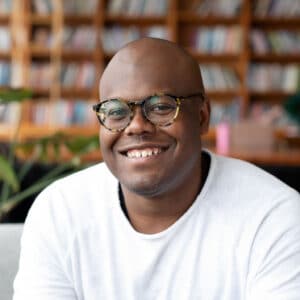
Lucas Johnson is Executive Vice President of Public Life & Social Healing at The On Being Project. He was previously a leader of the International Fellowship of Reconciliation, the world’s oldest interfaith peace organization. Read his full bio here.
Transcript
Krista Tippett, host: I hear the word “love” rising in our time — a question of what love can mean as a practical public good and the only thing big enough to meet the “hate” we’ve come to treat so seriously in our midst. Love is the most reliable muscle of human transformation. And Rami Nashashibi and Lucas Johnson are young, visionary models and teachers of this. They’re picking up the call to love that drove the civil rights generation of their parents, and showing how it would pragmatically transmute justice, power, nonviolence, and community organizing now.
[music: “Seven League Boots” by Zoë Keating]
Rami Nashashibi: I’ve developed a course about community organizing as a spiritual practice, because I think there was a lot in this idea of beginning with the notion that we all have a stake in this, and the returning citizens, the brothers on the corners, the young, we — I think, from the justice standpoint, one of the things that we think about a lot in the context of language is this idea of calling out and calling up. For us, doing that at granular spaces like the corner store make it real.
Lucas Johnson: I think that there’s this place where we have a responsibility to hold to the power of love that we know to be true and to not allow the world around us to deaden that in ourselves.
I’m Krista Tippett, and this is On Being.
This conversation unfolded at the 2018 On Being Gathering at the 1440 Multiversity, among the redwoods of Scotts Valley, California. Since this conversation, Lucas Johnson has joined On Being as executive director of our Civil Conversations Project.
Ms. Tippett: We have an hour now with Rami Nashashibi and Lucas Johnson. Rami is the founder and leader of the Inner-City Muslim Action Network, known as IMAN. It’s the Southwest side of Chicago, to be precise.
Mr. Nashashibi: South Side.
[applause]
Ms. Tippett: So it is, I would say, a holistic approach to presence and healing in the inner city, through the lens, through the approach of working with — initially, when you started at a very young age — Muslim young people and families in crisis or who were vulnerable in the inner city. And yes, for the Muslim community, but the broader Muslim community and all of the communities they interact with every day. And Lucas — oh, I also want to say about Rami — I need to mention that he just got a MacArthur genius award. But I’m not — yeah.
[applause]
But I am not a whit more impressed with him than I was before, because I always knew.
[laughter]
And Lucas is the international coordinator of the International Fellowship of Reconciliation, which is a century-old reconciliation and peace-building organization, which was created in response to the horrors of war in the early 20th century, founded in 1914. And it is still in 48 countries. And that is actually how I met Lucas in the first place — through Vincent Harding, one of our great elders, who I was so fortunate to interview before he died. And he said to me, “Lucas embodies this for this coming generation.” And I don’t know if this is the right place to start, but here we are, thinking about elders and teachers and the lineage. For both of you — Lucas, you as a Christian, and Rami, you as a Muslim — both Martin Luther King Jr. and Malcolm X are really important teachers. You both look to both of them a lot.
I see that happening — I see both of their voices rising up — and yet, I think, in their lifetimes they were seen as — I don’t know if they were contrasting figures, but they were separate paths. And I feel like, for the two of you, this is also part of this wholeness that your generation is claiming. They were also both assassinated. And I feel like King gets quoted at me every ten minutes right now, and that is so fascinating. We forget that in his lifetime — and Rami, you talk a lot about when he came to Chicago, he was not everybody’s hero. So there’s something beautiful about this — and interesting about how their voices, their lives, their teachings transcend the way they died, even the way they were held in this culture in their lifetimes. I just wonder if you would talk a little bit about that — what the two of them mean to you, and the two of them, together.
Mr. Nashashibi: Lucas? The Baptist preacher should start.
[laughter]
I would feel wrong starting that, giving that response.
Rev. Johnson: [laughs] Really? Really Rami?
Where do I begin? One of the benefits of learning from Vincent Harding and the other elders of the movement that he introduced and brought into my life was that I got a chance to understand the complexity of brothers Martin and Malcolm from people who knew them. And I got a chance to appreciate the extent to which they wrestled. And I think that we tend to look at those two in these kind of stagnant ways, in these un-nuanced ways that don’t do their lives, and their struggles and wrestling, justice.
And this is the 50th year of Martin Luther King, Jr.’s assassination, the anniversary, and I think about the fact that in ’67, he had famously come out in opposition to the Vietnam War. I think about the fact that he delivered that speech on April 4. It was a year to the day that he was killed. He was moving in this direction where he was trying to deal with these structural issues of violence in our country, the “edifice which produces beggars,” he said, both in his speech “Beyond Vietnam” and also, in his speech —
Ms. Tippett: Yeah, that you need to be a Good Samaritan, but you also need to ask …
Rev. Johnson: Transform the Jericho Road so that men and women aren’t constantly beaten and robbed as they make their way along life’s journey. To change the edifice that produces beggars is what he called us to. It’s interesting, because I think that Brother Malcolm, in some ways, was very much, also, engaged in that edifice-changing work. He was traveling to the United Nations, trying to get other states to hold the United States accountable to its treatment of its black citizens. And he understood that there was a structural thing that needed to be dealt with.
And so both were committed to this work of personal transformation, but they also knew that there was this structural change at work that was necessary. They’ve both been profoundly important to my life.
Mr. Nashashibi: We were talking earlier, when we ran into each other, about some of the stuff that I’ve been thinking about recently. The legacy of both continue to really animate so much of who I am and what I’m grateful for and the edifice upon which we do all our work and has been a nonstop engagement. The legacy of the Nation of Islam, the Honorable Elijah Muhammad, Malcolm, Imam Jamil Al-Amin, SNCC, and all of that woke me up as a kid. It’s what thrust me into an awareness of who I was as a child of Palestinian refugees, connected my struggle to black struggle, connected my struggle to brown struggle — particularly in those younger years, fueled by the fire and couldn’t get enough of it and looked for it — and I think, at that point, quite frankly, Martin Luther King wasn’t relevant to me. I didn’t have a way to connect to that legacy as much. As a Muslim, I saw the transcendent global connectivity that was just awe-inspiring for me that came out of the movement that helped to incubate Malcolm.
Ms. Tippett: And which he was so motivated, animated by, at the end of his life — that global…
Mr. Nashashibi: Absolutely, the global piece, the ability to see struggles in others. The ways in which, I think, that still, till today, are really underappreciated about the larger Muslim tradition in the United States. Malcolm and that legacy was a portal through which — in many ways, it began to symbolize the utter defiance of “No, we are human beings. And we are full human beings. We are spiritually connected to a global history.” And that was powerful.
But I think as I evolved in the work, both the legacy of King and, then, another kind of dimension of Malcolm, for me, began to intersect in a very powerful way. A part of Malcolm that, till today, I think, people, again, don’t really appreciate — the person who was constantly struggling, constantly evolving, the very human Malcolm. We are close to his daughters, and — Ilyasah is one of them. And when Ilyasah comes to our event and smiles, you see the smile of Malcolm. Malcolm is often made out to be this mad militant. And this was a person who had an extraordinary humor, had an extraordinary humanity, and was, again, constantly evolving, taking extraordinary risks in his own spiritual exploration.
And that is part of the King legacy that I find the most fascinating, that, again, I think, we don’t hear about. I just finished Where Do We Go from Here, which is that last book he wrote. And again, like “Beyond Vietnam,” it is filled with a King who is wrestling with his own legacy and how it was being captured, even in 1967. King was problematizing “I Have a Dream” before he died. And he was saying, “Listen, what we’re asking for now, it’s a harder sacrifice, and we don’t hear as many people coming out in the streets. We’re asking for equity.”
He was talking about, basically, a living wage. He was talking about a fundamental, radical restructuring of the economic system in the United States about basic equity. One of the moments in that book that I found fascinating was a chapter called “Black Power.” It’s King saying, “I don’t subscribe completely to the totality of what Black Power is expressing,” but in this entire chapter, he spends a lot of time trying to explain the urgency of Black Power to the liberal white reader. And again, I found it a moment that both — for me, it’s King wrestling: “I acknowledge all of the claims of Black Power. I feel it; I see it; I’ve experienced it. But I’m still calling us to something greater as a nation, as a people and a world.” And that resonates really profoundly with me.
[music: “First Encounters” by Victor Bermon]
Ms. Tippett: I’m Krista Tippett, and this is On Being. Today, with Rami Nashashibi and Lucas Johnson.
Ms. Tippett: I want to talk to the two of you about language that we need and, I think, people in this room by and large love but which also has become problematic and simplified — words like “peace” and “justice.” Again, I feel like Rami, what you’re doing with IMAN, you’re so careful to use different language and to look at things as a whole, not to be doing justice separate from corner stores and where there are people hearing great music. You talk about corner stores as places of hope and possibility. And the work you have with the formerly incarcerated — you call them “returning citizens.” And it’s not just language you use. It’s a different way to treat the project of healing the inner city. It’s not problem-focused; it’s wellness-focused. It’s wholeness-focused. I feel like, so much, when we talk about justice, even the greatest justice efforts can actually not touch that, sometimes.
Mr. Nashashibi: I think community organizing language has really informed a lot of the way I think about my own spiritual tradition and the work. I’ve developed a course about community organizing as a spiritual practice because I think there was a lot in this idea of beginning with the notion that we all have a stake in this. The returning citizens, the brothers on the corners, the young — we have to see ourselves as collectively invested in issues that we’re dealing with. If you don’t begin to understand the connectivity between the migrant, the immigrant, refugee who’s coming to the inner city and opening up a corner store and then contributing to a lot of the dynamics in the inner-city neighborhood, with the challenges that made that neighborhood what it was, then you’re just not looking at the whole picture. And I think, from the justice standpoint, one of the things that we think about a lot in the context of language is this idea of calling out and calling up. For us, doing that at granular spaces like the corner store make it real; make it, I think, a little more relevant than, maybe — and we all need that. We all need, I think, to be in these spaces —
Ms. Tippett: And you live in the neighborhood too.
Mr. Nashashibi: We’ve been there for many years.
Ms. Tippett: It’s not a place that you visit — you’re part of the community. It’s your corner store.
Lucas, one of your mentors across time and space is A. J. Muste, who founded IFOR. And he talked about a “revolutionary pacifism,” and I think those words just don’t land now. But what that meant was not about neutrality while surrounded by injustice but about finding the courage to respond in love. But sometimes you will refer to “what we call the civil rights movement.” I even think you want us to refresh our imagination about that language.
Rev. Johnson: That comes from Vincent Harding. He would always take issue with people referring to the “civil rights movement” as such, and find that that was a rather lazy description for what he and many of his peers risked their lives for. He would prefer to either use the expression of “the black-led freedom struggle” or, sometimes, “the Southern freedom struggle” or the “Southern freedom movement.” He would want us to reframe that.
I find that there’s a lot of our language — the language of nonviolence becomes, I think, very problematic today in communities that are — I think, these days, a lot of people relate to the language of nonviolence as another way of telling them how they need to respond to their oppression and to the difficulty in their midst. And I think that that does revolutionary pacifism a disservice because it was far more than just telling oppressed people that they need to temper their tone or address the way that they’re speaking or calling out the injustices that they’re surrounded by.
Ms. Tippett: I think this question of — we live in this moment where fear is rampant and anger is rampant on many sides. And a lot of it is justified. You can’t argue with — obviously, we could all argue with some of it and not argue with others. How do the two of you think about this tension, which I think you take on as a creative tension, of nonviolence and the righteousness of anger and grief? How would this tradition, in its depths that you know, how does it meet this human quandary, this complexity?
Rev. Johnson: I think about the moment when Mike Brown’s stepfather, when the verdict came of the acquittal of the officer that killed his son. I think that, if I remember this correctly, he screamed, “Burn it down.” I think about the criticism that he received. I think about the fact that, to me, if it were my son, the destruction of property seems to me like a far more human response than to sit on the sidelines and tell people to be peaceful and use nonviolence. What I’m speaking to is not that I think that that’s a good thing, but I’m trying to speak to this fact that I don’t feel like we wrestle enough with the real grief and anger that is natural to feel in the face of such injustice.
Now, I think, on the other side, the tension, for me, is accepting this fact that, frankly, when I think about the generations of dehumanization and suffering that my people have endured — how can there be justice for what’s happened, in the sense that we tend to look for it? And so that’s where my spiritual practice comes in, where I have to find another way of accepting and dealing with that grief.
One of the biggest, I think, challenges with King’s notion of nonviolence is this idea that unmerited suffering can be redemptive. And I think that’s a very, very difficult thing.
Ms. Tippett: I think you’ve said that in your work with International Fellowship of Reconciliation, that’s something that people struggle with.
Rev. Johnson: Absolutely, and I think that our spiritual traditions give us resources for dealing with that, but it’s a hard thing to wrestle with. It’s a hard thing to accept and to believe. And I feel like that is a part of the tension of the spiritual discipline of nonviolence. But I feel like it’s far too often neglected, and people don’t really live with that tension, which means that they’re not really confronting the anger, which means that they’re not really taking themselves to that empathic experience of other people’s pain.
Mr. Nashashibi: I also think about that kind of spiritual tension between justice — and in our tradition, it’s justice and mercy…
Ms. Tippett: Right, which is such a good word. We need to use that word more.
Mr. Nashashibi: We’re taught that you never pray for justice — never pray for justice, because, as much as you want justice, you pray for mercy. In other words, you never pray for God to be just with you because you recognize that we all got issues.
[laughter]
All of our communities have issues, and, when you start disentangling the layers of oppression, that we begin to find that we are oppressors of one another. We are oppressors of ourselves. In fact, there are many verses in the Qur’anic text that say: ‘I did not oppress them; in fact, they oppressed their own selves. They oppressed their own souls.’
And I think about that spiritual notion up against those moments, though — what you were saying about living those moments. We were talking about I just came from Jerusalem. And I’m coming out of Aqsa. Right outside of the compound, the sacred compound, there’s a historic African-Palestinian community, and some of them know me. They said, “Rami, you got to come to dinner with us tonight.” Probably 30 minutes into their dinner, the Israeli soldiers raid the compound, and their son is grabbed, along with five other kids. The youngest is ten years old.
And now I’m following a father who gets up and runs. And of course, I’m running with him. I was there. And it’s in those moments where conversations about justice and mercy — it’s a rubber-meet-the-road kind of moment. It’s, how do you still look at the soldier?
And there was one moment, I looked at the soldier. I looked at one of them. And I knew it was fear in his eyes.
Rev. Johnson: They’re kids, mostly.
Mr. Nashashibi: Because the soldiers are 18-, 19-year-old Israeli kids, looking at a group of young Palestinian kids who have been brought up in occupation, who no longer fear them. And the irrationality of a guy armed with an Uzi submachine gun, looking at 8- and 9-, 10-, 11-year-olds as potential threats — and being in that moment, I could, strangely enough, identify with the impossible position that that soldier was in. I don’t think I would have as a young, ten-year-old Palestinian kid, but I think part of the work that’s shaped me over the last several decades in Chicago have given me a type of privilege to think about mercy and justice in a way that maybe others that are living the raw brutality of oppression every single day don’t have.
[music: “Frontier Ballet” by Brent Arnold]
Ms. Tippett: After a short break, more with Rami Nashashibi and Lucas Johnson. You can always listen again and hear the unedited version of every show we do on the On Being podcast feed — wherever you find your podcasts.
Ms. Tippett: I’m Krista Tippett, and this is On Being. Today, I’m with Reverend Lucas Johnson and Rami Nashashibi. They are two pragmatic, young visionaries who model community organizing as a spiritual practice and love as a practical public good.
A child of a military family, Lucas was global coordinator of the Fellowship of Reconciliation, which was founded in 1914 and is still active in over 40 countries. He’s recently become the first executive director of On Being’s Civil Conversations Project. Rami, a MacArthur “Genius” Fellow, created and leads IMAN, the Inner-City Muslim Action Network, a force for healing on the South Side of Chicago, where he also lives with his family. We spoke at the 2018 On Being Gathering.
Ms. Tippett: This dynamic — and of course, it’s extremely intense in Jerusalem, and in many places in the world where you work, Lucas, but it’s here now too, that there’s all this fear all around. It’s like our different fears are pitted against each other. These different kinds of fear from living in different parts of the country — what’s happening with the economy, what’s happening with — we can talk about all these layers — immigration policy — I wonder what wisdom you have about the spiritual discipline of being a citizen in this moment. And I think part of it is that those of us who do have the privilege to be standing on the solid ground, to not be immediately endangered — what is the responsibility for us in a moment like this, where so many people really feel endangered? And the perception of being endangered is as powerful in our brains as the actual, so we have to take that seriously. Where do you go with that?
Rev. Johnson: I’m not sure if I have wisdom at the end of this story, but something about that description reminded me of one of my earliest times being racially profiled, or stopped by the police. Well, actually, it’s not one of my earliest times. This is maybe three times in. I was a sophomore in college, and I went to school at a predominantly white private school. I was walking around, talking — I was in the Baptist Student Union at the time, and I was walking with a young white woman who was also in the BSU, and we were walking around campus, and we were talking about, probably, Jesus.
[laughter]
Mr. Nashashibi: Late-night Jesus conversation.
[laughter]
Rev. Johnson: I mean, it’s what you did. It’s what you did. [laughs]
We’re having this conversation and walking around campus, and all of a sudden, a police car pulls up, and the lights are shining, and the officer gets out of the car, and he shines a flashlight in my eye. I don’t know if any of you have ever had that experience, but you can’t see anything. So it’s already just a very disorienting experience, because if they’re shining that light in your eye, you can’t — you just hear the voices. So the officer says, “Ma’am, are you OK?” And my friend says, “Yeah, I’m fine. We’re just walking around.”
And then they look at me and say — well, I’m assuming they’re looking at me, at this point, since I can’t see, still. They say, “Are you a student here?” And I say, “Yes, I am.” And then I played a trick that I learned to do as a kid, because at the time, I was on student government, and so I had met some of the police officers on the campus. And so I start to call names, start to say, “Officer such-and-such, is that you?” And the flashlight begins to lower, and I think I have to show my campus ID, and then they go away.
The real difficulty of that moment was the next day, when I tried to tell some of my friends who were white about that experience. I’m recounting it — I remember just shaking as I’m talking about it. And my friends say, “Yeah, but come on. I mean, if someone was gonna be on campus that didn’t belong, they would probably be black.” These were my friends, right? So I thought.
And I knew that, in that moment — because I believe they cared about me — I believe that in order to say that to me, they had to suppress something within them, using the most ridiculous logic, the biggest threats to my — I don’t want to say “my girlfriend”; she wasn’t my girlfriend, but my friend who was a girl — the biggest threats to her safety were not coming from outside the campus.
Needless to say, those friendships were severed at that moment, because how can we be friends when I know that you would be comfortable with my dehumanization? But in order for us to find our way back, we had to continue to talk, to deconstruct the lie. I couldn’t do it immediately. It took maybe a year for us to be able to have that conversation. But in time, we could. And I’m grateful for that. So I don’t know if there’s any wisdom to be learned from that, but I think it’s a challenge, something that I wrestle with in each situation that I’m confronted with, because the fear doesn’t show up in the same way.
Ms. Tippett: And it often doesn’t show up as fear — doesn’t present itself as fear.
Rev. Johnson: It doesn’t show up as fear; exactly.
Ms. Tippett: It presents itself as anger.
Rev. Johnson: Yeah, so you have to — one is, you have to be in a place where you can see. And sometimes we’re not. I think we have to admit that with ourselves. Sometimes we’re not in that space. And it takes, sometimes, a privilege, a distance. It takes a certain set of ingredients, sometimes, for us to arrive at the place where we can see that fear. But it’s also something that we can practice. We had to have different types of conversations that weren’t about that moment in order for us to come back to some semblance of a relationship. But it also helped that we were on the same campus. We would keep seeing each other, over and over again. So it wasn’t as easy for us to retreat to our silos and avoid each other.
Mr. Nashashibi: I like the idea that you were just talking about, this idea of experiential divides. When you think about what you just said — you were on the same campus — I think Bryan Stevenson was once asked, “What’s part of the solution?” And he said, “Look, there’s” — he talked about what I heard as “the power in proximity.” Try to continue to agitate yourself to be proximate to the pain.
Last summer, I leave my house really quickly on an errand to go fill my wife’s van up with gas. I’m running, and she’s running. I go to the gas station, the closest one, and there’s two young black kids, probably 13, 14. One has his shirt off. And two cop cars are there.
So I’m feeling like, yeah. I’m looking at this; I’m like, OK. And then another cop car shows up. Then three, four more come up. Then a white shirt comes up, and I say, “Oh, man.” So I just said, I can’t sit there filling my gas. So I go walk up, and I’m just sitting there looking at them. And I’m talking to these young brothers. I’m like, What the here is going on? They said, We were walking here, blah blah — again, the kid, he’s in shorts. It’s summer; he has no shirt. You could see what he has on. The other kid is sitting there, watching this. And there’s like 15, 17 cops coming around.
And finally, one cop comes by me and says, “What’s the problem?” I said, “Are you kidding? [laughs] We’re in Chicago. We’re in the district that Laquan got shot. I’m gonna sit and watch to make sure this doesn’t have to unnecessarily escalate, officer. I don’t see a threat here.”
But the fact that cars could just zoom by that and normalize that type of tension and experience — I think I’ve experienced, in a much lighter version, of being thrown on a cop car, being arrested for disorderly conduct in the Eighth District, a while ago. And what it meant — the extraordinary, dehumanizing and enraging experience you have when officers are directly lying about their encounter that they had with you in a court of law — and then being found guilty.
But I do think, in those moments — Krista, with, I think the original question — in my mind, I’m hearing about the reality of the experience. How do you put yourself more proximate, in proximity to the pain? And I think, on the flipside, how do those of us who have proximity to the pain don’t get jaded and succumb to despair and cynicism about the possibility of reconciliation? And again, I think there are spiritual techniques and tools.
For me, again, in the Muslim tradition, anyway, despair is just so antithetical. In fact, the word “despair,” “balasa,” is the root word of “to despair.” It’s, etymologically, directly connected to the word “Iblis,” which is “Satan.” So the idea of darkness and despair and succumbing to the inability to constantly see — and again, Muslim tradition is filled with stories that you have to present to Muslims, even in the context of something that seems as intractable as the Palestinian-Israeli conflict, of people who were at each other’s necks during the time of the Prophet Mohammed, people who killed his family members, people who slaughtered innocents but found a way to reconcile as brothers and sisters.
So it might occasionally sound Pollyannish in terms of where you’re coming from, but it’s an integral part of the tradition. Reconciliation is a part of the tradition. And if you’re sincere and genuine about it, you have to strive towards it still and not despair that you have gotten to a point where it’s impossible.
[music: “Saint Rose Of Lima” by The Mercury Program]
Ms. Tippett: I’m Krista Tippett, and this is On Being. Today, with Rami Nashashibi and Lucas Johnson.
Ms. Tippett: I want to end talking about love. Actually, I recently was reading King’s speech in 1967, where he said, “Darkness cannot put out darkness, only light can do to that. And I say to you, I have also decided to stick to love, for I know that love is ultimately the only answer to mankind’s problems, and I’m going to talk about it everywhere I go. I know it isn’t popular to talk about it in some circles today” — nor today — and then he says, “I’m not talking about emotional bosh when I talk about love, I’m talking about a strong, demanding love. And I have seen too much hate. I’ve seen too much hate on the faces of sheriffs in the South. I’ve seen hate on the faces of too many Klansmen and too many White Citizens Councilors to want to hate myself, because every time I see it, I know that it does something to their faces and their personalities and I say to myself that hate is too great a burden to bear.” I want to, just in the last few minutes — I feel like figuring out what “strong, demanding love” is in public is also our work.
I feel, we, culturally — we have named hate in our midst. We have named it. We call it out. We have created legal categories around it. And that creates a paradoxical — I don’t think just an opening and an invitation, but a responsibility to interrogate love in the same way, if he’s right that it’s the only thing big enough to drive out hate. And I think we actually all know this. I can’t prove it politically or scientifically — it’s true. We know it. But still, what is this strong, demanding love? What are its qualities, and how do we start to make it happen? And I feel like the two of you are living this, so what have you learned about this?
Rev. Johnson: As the Muslim, I feel like, it’s your turn to speak.
[laughter]
Mr. Nashashibi: Oh, it’s my turn. All right, I’ll take that. I guess I would think about it in two ways and try to be short with it. One, to maybe continue with King and continue with those last words of King — and I sent this to all our organizers, because we do these organizing trainings, and everyone always struggles in our organizing trainings, especially in spiritual communities, with the word “power.” We talk about, organizers need to build unapologetic power. And you cannot conflate power with “power corrupts” and “absolute power corrupts, absolutely.” “Why do we want power? We’re a spiritual people” — no. You need power. Power, the ability to act, to get things done.
And what’s so brilliant in that last text is, King positions — one of the biggest, diametric, dichotomous misunderstandings is juxtaposing love against power. And what he was saying is, our love needs to drive us to build power, to build the ability, the capacity to move an agenda that is predicated on a better vision of the world. So I think, in part, that idea of expressing — because in that same text, he talks about love without power being sentimental —
Ms. Tippett: Well, and what we do culturally, we know hate is powerful. We honor the power of hate. But we don’t think of love as — we don’t put those two things together as powerful — although, in our lives, we know it’s powerful.
Mr. Nashashibi: And I think he talks about it very practically in that context of really what it means to build real agendas, coalitions, and alliances to sustain movements. So I think there is that, and I think love in public is about, do we love those who are directly affected, including ourselves, enough to make the type of sacrifices to build collective power to change those realities that are on the ground? I think that’s a really important question for all of us, around not just the more, I think, easier issues to talk about, but some of the more complicated set of social issues that really implicate all of us on some level or the other.
And I think that also, then, links to the other aspect, for me, about love, which is the spiritual, more aspirational, I think, harder-to-achieve notion of love, which — again, I think about a hadith, a prophetic saying, that says: [speaks in Arabic] — “Be distant from the dunya, if you will, the worldly. Don’t be so caught up in this world. Have genuine spiritual practices that are authentically aligned with the reality and understanding that we are all going to meet our creator and that this world is very temporary and that if you are genuinely rooted in that understanding, that you will obtain the love of the divine.” And that if you are, also — the second part of that is: “And be distant from just trying to keep up with the possessions of the people.” In other words, if you are genuinely — if your existence is not simply about material competition with others and what does that look like in our context of our modern reality, to be able to say that we’re not in it just for a vote; we’re not just in it for a particular benefit — that genuine commitment to people. If you are distant from simply aspiring towards the possessions of people, you will obtain the love of the people.
And, I think — we have this one saying. Every morning, we come, and we have these young 18-to-25-year-olds, returning citizens, and we all gather, and it’s around 35 of us, and we always say, “Look, we only want one thing from you, one thing from you” — and they all know this now; they say — “your success in this life and your spiritual success as a person that aspires towards something greater.” And the context of love — it is profound to see people — we talk a lot, among guys who have really been jaded by this toxic masculinity — to be able to say “I love you.”
The other day, I was at the bank, and one of those young brothers saw me as I was coming out. We were messing around with him, and he’s like, going, “Make it rain, Rami, make it rain.” We’re going outside of the bank. And then — this is a kid I knew from the neighborhood for many years, with nothing but that, just, hard look. He looked at me as I was leaving, and he said, “Man, I love you, man.” And I looked at him. I said, “Wow, I never thought I heard you say that.” He said, “I know, man.”
[laughter]
And for me, that was just that moment, that “wow.” And the guys, I walk in, and they’re like, “We’re saying ‘I love you’ all the time now around here. I can say that, and I mean it.” And I think, as corny as that might sound sometimes, it’s powerful to see that the force that animates work, for me, is believed — that love is genuine, that it’s authentic, and it’s part of what drives, I think, a sense of realness in terms of connection.
Rev. Johnson: So I shouldn’t have asked you to go first.
[laughter]
No, but I’m reminded of this story. Within the Fellowship of Reconciliation, there’s been this — you referenced it earlier. The language of nonviolence wasn’t there, so it started as this movement of conscientious objectors, of people who said that “Our faith will not allow us to kill another person. We can’t participate in war.” But they went on to try to figure out what that looked like. They talked about love in action. And so when early leaders of FOR went to India and met Gandhi and were trying to experiment with these Gandhian tactics in the racial justice struggle in the United States. There was this debate that happened within the organization around 1946, before the Journey of Reconciliation, the first of the Freedom Rides. And the debate was whether or not, by using these tactics, by taking an integrated bus, south — whether or not doing that would provoke the Southerners to violence and, therefore, inviting the Southerners to moral injury. In other words, was it true to our convictions if we did something that was provocative in that sense?
And the answer, from A. J. Muste and Bayard Rustin and others, was: No; what we’re doing is, we’re inviting the Southerners to a response, the segregationists to a response, and we’re holding a mirror to them. And that is the most loving thing you can do, to confront people with the image of who they’ve become as they’ve committed these acts of violence. It was oriented towards wanting people to be able to be the people that they believe themselves to be.
That’s an incredibly loving thing, and I think, for me, one of the difficult things, because we have a culture that’s so oriented towards punishment and punitive measures, and we want to punish people for what they’ve done. We don’t talk about the fact that none of us were born with this desire to be evil. Maybe that’s a theological claim that we might have to discuss, but I don’t believe that.
And I think that the power of love to — and it is both an internal — another moment for A. J. Muste was, he was demonstrating on a picket line, and the reporter came up to him and said, “Mr. Muste, do you believe that your demonstrating will change the country?” And he responded by saying, “Young man, I’m demonstrating so that my country doesn’t change me.” And so I think that there’s this place where we have a responsibility to hold to the power of love that we know to be true and to not allow the world around us to deaden that in ourselves. And I think it’s really tempting. And not allowing that to die in ourselves is a part of what enables us to engage others in that way, but it’s a struggle.
Ms. Tippett: That’s where I feel, though, that — maybe this is my thing — the power of the words we use and to call these things “love.” If people feel like, “Oh, so do I have to become an activist?” — that’s problematic. But “Am I a lover? Do I love the world? Do I love my children? Do I know that other people love their children and what I want for my children” — right? So to me, that feels powerful.
I wonder if, Lucas, this is something you’ve said about Vincent Harding, and I wondered if maybe, to end it — you guys are so great, and what I’m so excited about is that you’re out there doing what you’re doing, and everybody in here is doing what they’re doing, and we’re all in conversation. This is a work in progress that we’re experiencing and participating in. So can you read it? It’s faint.
Rev. Johnson: Wait, this is what I wrote about Uncle Vincent.
[laughter]
Ms. Tippett: Yeah. You can —
Rev. Johnson: At first, I thought you were saying that he wrote it.
Ms. Tippett: No, you wrote it. You can also say it in your own, current words.
Rev. Johnson: No; this was true of Vincent Harding, who was a dear mentor and friend and who I miss. “He could see us, each of us whom he encountered. He did not see the caricatures of ourselves, nor what our ideological commitments had made us or our fear had tricked us into becoming. He could see in us who we were destined to be: more fully human. And he used his gift of sight to help us see ourselves and each other.”
Ms. Tippett: Lucas Johnson, Rami Nashashibi, thank you.
[applause]
[music: “Brilliant Lies” by Ovum]
Ms. Tippett: Reverend Lucas Johnson is executive director of On Being’s Civil Conversations Project. Until December, 2018, he was global coordinator of the International Fellowship of Reconciliation.
Rami Nashashibi is founder and executive director of the Inner-City Muslim Action Network in Chicago and a 2017 MacArthur fellow.
Staff: The On Being Project is Chris Heagle, Lily Percy, Maia Tarrell, Marie Sambilay, Erinn Farrell, Laurén Dørdal, Tony Liu, Bethany Iverson, Erin Colasacco, Kristin Lin, Profit Idowu, Eddie Gonzalez, Lilian Vo, Lucas Johnson, Damon Lee, Suzette Burley, Katie Gordon, Zack Rose, and Serri Graslie.
Ms. Tippett: Special thanks this week to the wonderful 1440 Multiversity team, especially Susan Freddie, Susan Coles, Janna Smith, Michelle MacNamara, Steve Seabock, Avery Laurin, Joshua Greene, and David Dunning.
The On Being Project is located on Dakota Land. Our lovely theme music is provided and composed by Zoë Keating. And the last voice that you hear singing at the end of our show is Cameron Kinghorn.
[music: “The Church of Cause and Effect” by The Mercury Program]
On Being is an independent production of The On Being Project. It’s distributed to public radio stations by PRX. I created this show at American Public Media.
Our funding partners include:
The George Family Foundation, in support of the Civil Conversations Project.
The Fetzer Institute, helping to build the spiritual foundation for a loving world. Find them at fetzer.org.
Kalliopeia Foundation, working to create a future where universal spiritual values form the foundation of how we care for our common home.
Humanity United, advancing human dignity at home and around the world. Find out more at humanityunited.org, part of the Omidyar Group.
The Henry Luce Foundation, in support of Public Theology Reimagined.
The Osprey Foundation — a catalyst for empowered, healthy, and fulfilled lives.
And the Lilly Endowment, an Indianapolis-based, private family foundation dedicated to its founders’ interests in religion, community development, and education.






